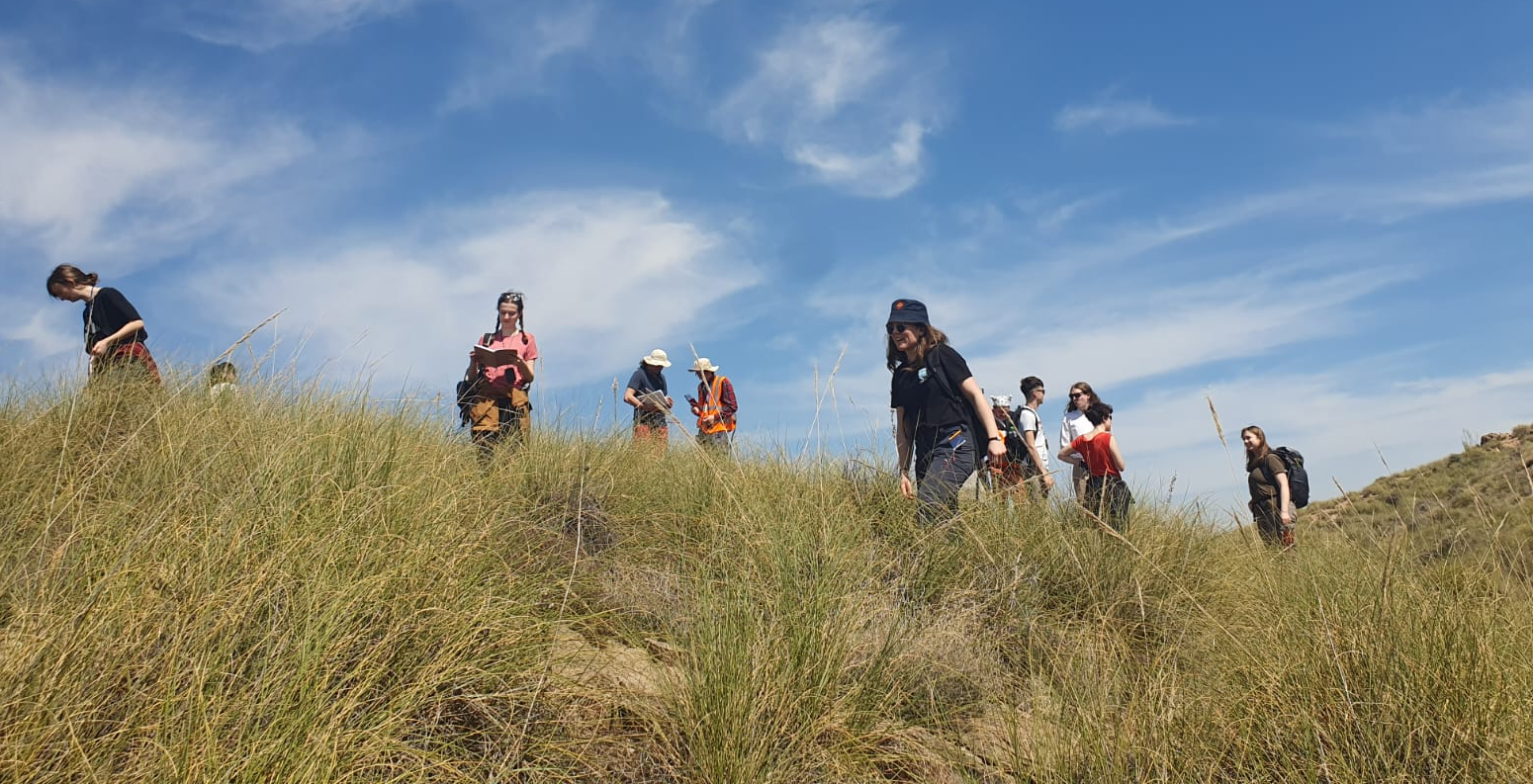
Welcome to Part III Earth Sciences, which is an MSc-level course. Having built up the basics over the past three years, the focus now shifts to the application of those principles, and a more critical, interrogative and creative approach to understanding how the planet works. Increasingly, the important insights in Earth Sciences turn up in the territory between the conventional disciplines, and the course is designed to encourage a breadth of research-level experience, even as you focus on your own research project. By the end of the course you will be in a position to take on advanced academic research—or any other occupation requiring analytical ability, intellectual dexterity, writing skills, presentation skills and self-motivation.
There are three principal components to Part III Earth Sciences:
1) The research project
This is the centrepiece of the course, where you address a particular research question over the course of the Michaelmas and Lent Terms. You will submit a report demonstrating your ability to generate new observations, data and ideas. Importantly, the success (and grading) of these projects is not measured in absolute results, but the approaches you take in pursuing them. Your project supervisor will be there for general guidance, but it is up to you to drive the work forward, and in the direction you think it should go. The key is to do lots of reading, attend lots of seminars, and interact with the many other researchers. The key to great research is often to formulate the right questions.
Besides the research skills, there is also a focus on communicating science ideas. During the year, you will present your research in the form of a poster, a presentation, and a project report. Only the latter is marked. Skills seminars will be given on scientific communication.
A list of potential research projects is shared with part II students in Lent term. If students want to work with a particular faculty member and design a particular project, it is best to start this conversation in Michaelmas or early in Lent term in the year before. After potential projects are shared, students are encouraged to discuss their favoured projects with faculty members. Students submit their top choices to the teaching office after which projects will be allocated towards the end of Lent term.
Please find more information in the example project guide (from 2024-25). And an example list of projects for 2025-26.
2) Option courses
Specialist option courses offered during the Michaelmas and Lent terms are a further step up from Part II lectures, with an increasing focus on current research issues and debates. As such, the topics and content will vary from year to year, as will the structure of any particular course. At least 14 (usually more) 4,6,or 8-week option courses are offered each year, from which you will officially take six. Easter Term exams will be individually tailored to a particular option, but they all will be looking for an advanced near-research level of understanding. This means not only being able recall factually accurate material, but also being able to synthesise material from your lectures, reading and seminars. The best means of achieving this level of understanding, and the ability to communicate it, is to engage fully with the suggested reading for your course options, to always ask questions to your lecturers and supervisors when needed (there is no such thing as a silly question, apart from the question never asked). It is also essential to arrange regular supervisions to allow you to practice writing essays, obtain essay feedback, and clarify your understanding.
Here is an example list of optional courses for 2024-25. Course offerings do vary from year to year.
3) Seminars and the Easter field trip
The Department hosts a broad range of seminars and seminar series, and you should make it your business to attend as many as possible. This is the best way of tracking the very latest research in your areas of interest, and seeing how it gets done (and presented). The Departmental Seminars and Bullard Seminars are particularly recommended. A short seminar series at the beginning of Easter Term will address issues and research broadly inspired by the Easter field trip. The field trip to South East Spain – is a revision and enrichment of the course – takes place in the Easter vacation.
Rachael Rhodes and Sanne Cottaar (Part III course-coordinators)
Part III poster presentations. Photos by Sarah Humbert.
More information
Further information can be found in the example course guide. If you have any questions, please contact our Teaching Support Manager or course coordinators.

